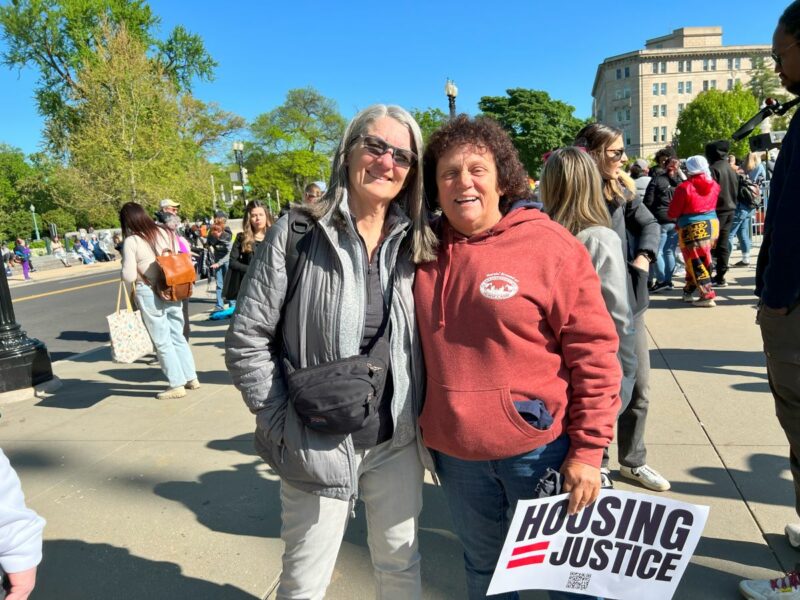Homelessness is one of the most prominent social ills of modern America. The crisis, which is an offshoot of the housing crisis and a testament to growing wealth inequality, adversely affects millions of US residents.
Have you ever stared into the sweeping cityscape and seen a fellow human in distress? Have you ever cast your eyes in the other direction, too pained to continue looking on? Have you ever wondered if homelessness could happen to you?
Of course, the answer is that this predicament could happen to just about anyone. Most Americans are one or two paychecks, a serious illness, or even just a car repair bill away from becoming unhoused. But one indicator of how vulnerable you are to becoming homeless is something known as a housing wage.
Learn what it is, why it matters, and how your income tallies against the odds.
A Housing Wage is the Hourly Rate a Fulltime Worker Needs to Avoid Being Rent-Burdened
Each state in America is assigned a “housing wage,” which shows the income a full-time worker needs to earn to afford a two-bedroom rental unit without being rent-burdened.
To make sense of this, we must first understand that rent burden is a term used to describe individuals or families who spend more than 30% of their income on housing. In an ideal world, rent burden would never happen since it is a key predictor of homelessness.
In reality, though, nearly half of all American renters are rent-burdened, 49% to be exact. According to the government Census, that figure represents roughly 19 million renters nationwide.
Are you one of them? Review the list below to find out.
Housing Wages by State
Below, you will find a full list of housing wages by state. These hourly rates vary greatly, ranging from just $16.27 per hour on the low end up to $42.25 per hour on the high end. They exhibit a median nationwide rate of approximately $28.58 per hour.
Remember that 52 million American workers earn less than $15 an hour, meaning they don’t even qualify for the housing wage in the most inexpensive state in the country. Fully 62% of all American jobs on the market pay less than $20 an hour, which is $8.58 lower than the median housing wage.
Want to see how your income compares to the rest of the country? Refer to the list below:
- Alabama – $18.13
- Alaska – $26.32
- Arizona – $29.93
- Arkansas – $16.27
- California – $42.25
- Colorado – $32.13
- Connecticut – $31.93
- Delaware – $26.09
- Florida – $30.59
- Georgia – $24.75
- Hawaii – $41.83
- Idaho – $21.53
- Illinois – $24.59
- Indiana – $19
- Iowa – $18.13
- Kansas $18.71
- Kentucky – $17.90
- Louisiana – $19.39
- Maine – $24.73
- Maryland – $31.08
- Massachusetts – $41.64
- Michigan – $21.65
- Minnesota – $24.11
- Mississippi – $17.21
- Missouri – $18.54
- Montana – $19.28
- Nebraska – $18.91
- Nevada – $27.99
- New Hampshire -$29.86
- New Jersey – $33.50
- New Mexico – $19.88
- New York – $40.08
- North Carolina – $21.54
- North Dakota – $17.79
- Ohio – $19.09
- Oklahoma – $18.00
- Oregon – $29.72
- Pennsylvania $23.61
- Rhode Island – $27.78
- South Carolina – $21.48
- South Dakota – $17.49
- Tennessee – $20.76
- Texas – $25.06
- Utah – $24.93
- Vermont – $25.54
- Virginia – $26.84
- Washington – $36.33
- West Virginia – $16.64
- Wisconsin – $20.32
- Wyoming – $17.94
The Difference between a Living Wage and a Housing Wage
Much like the median wage and the minimum wage, which are literally two sides of the same economic coin, the living wage and the housing wage go hand in hand but are also different.
A housing wage deals only with the amount of money a person needs to make to avoid the hardship of rent burden and subsequent potential homelessness. A living wage is how much money is necessary to live comfortably in each state. It takes into account other factors such as the price of:
- Food
- Shelter
- Healthcare
- Childcare
- Transit
- Necessities
It’s important to point out that if your area’s living wage is extremely high, you might need to spend much less than 30% of your income on housing. And, as basic necessities that influence wealth and opportunity increase in price (consider the ever-escalating price of transportation, for example), the living wage might be higher than that 70% of your income that’s left after you’ve paid the rent or mortgage.
Did you know back in the 70s, the rule of thumb was that your rent or mortgage should be equivalent to or less than one week’s pay? The bar was later raised because wages became stagnant, showing that housing wages and living wages can fluctuate or even be manipulated.
Not Making or Exceeding the Housing Wage in Your State? Talk to Your Representatives About the Housing Crisis.
The leading cause of homelessness nationwide is, and has been for decades on end, the lack of affordable housing. If your hourly income is sitting at or below the 2023 housing wage for your state, you are already at risk of homelessness. Talk to your local representatives about preventing homelessness by making housing a human right.











